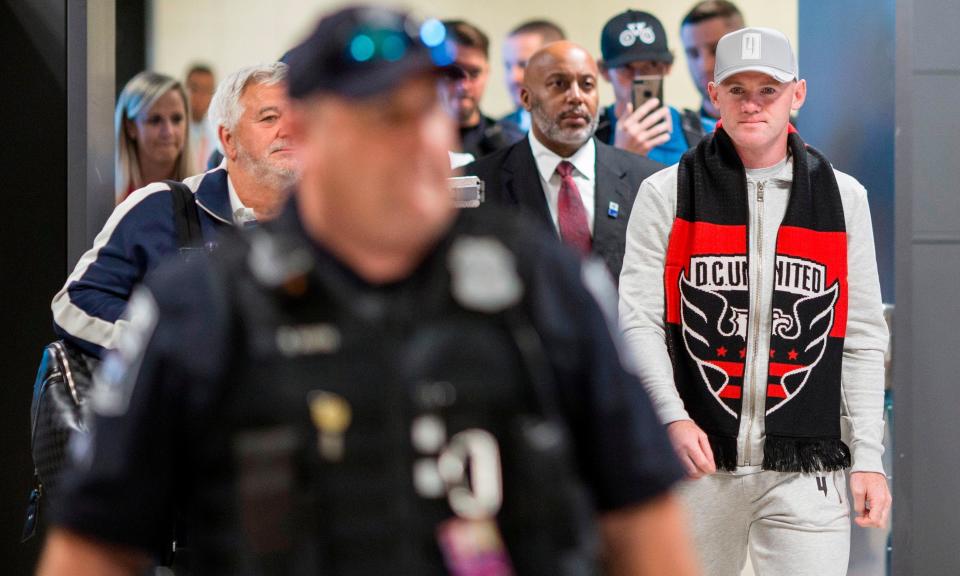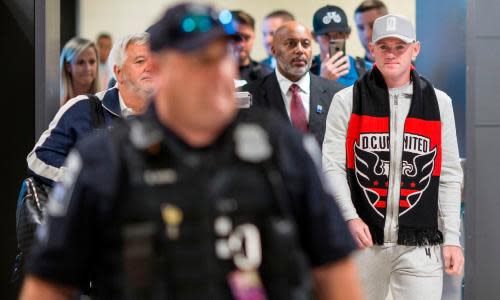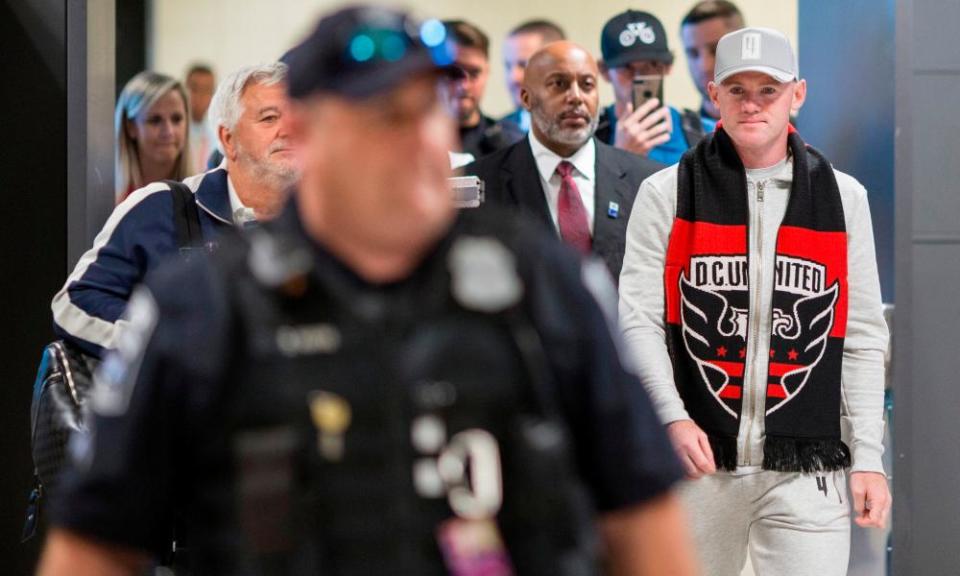Why Wayne Rooney is leaving the Premier League to join the MLS's worst club
Wayne Rooney made his first visit to Washington DC earlier this month. Had he picked up a newspaper he’d have been faced with images of sporting celebration in the city. The Washington Capitals’ victorious run to the Stanley Cup final captivated his new hometown, not always the most obvious of sporting hotbeds.
ESPN analyst Michael Wilbon once called Washington a “minor league sports town,” but over 100,000 fans attended the Caps’ victory parade on 12 June. DC United, the team Rooney has signed a three-and-a-half-year contract with, haven’t registered in this way for a long time, if ever.
Once a Major League Soccer superpower, winning four MLS Cups between 1996 and 2004, DC United have fallen on tough times of late. At present, they sit slumped at the foot of the Eastern Conference (although they have a few games in hand over other teams). Looking at their record over the past few seasons, particularly last year when they finished joint-bottom in the overall standings, this is an accurate reflection of their place in MLS at the moment. They are the worst team in MLS.
But Rooney is a symbolic signing. DC United could soon have new owners, with Los Angeles Lakers minority owner Patrick Soon-Shiong reportedly close to a deal that values the club at $500m, and on 14 July the club will move into their new $180m Audi Field home. If the old, crumbling RFK Stadium can be considered emblematic of the deterioration of DC United over the past two decades, then their gleaming new home presents the image of their future. Rooney would be another statement of ambition.
READ MORE: Vote! Who’s been the best player of the World Cup so far?
READ MORE: England’s possible route to the World Cup Final
DC United, even in their glory days, have never been a club distinguished by big name players. Ryan Nelsen, Jeff Agoos and Dwayne De Rosario are club legends, but the signing of Rooney marks a new age. Not since Johan Cruyff signed for the Washington Diplomats back in the NASL era has the capital welcomed such a star.
And yet the general response to Rooney’s arrival at DC United has been one of apathy. The former Manchester United forward will be the most high-profile Englishman to play in MLS since David Beckham, but in the eyes of most Americans Rooney is no Beckham. He won’t make the cover of People magazine. His family life probably won’t be discussed on TMZ. The signing of Rooney is not a cultural event in the same way Beckham’s was.
What’s more, MLS is in a very different place to where it was when Beckham pitched up. Back then, the mainstream appeal of the former England captain was key in growing the public image of the American game. Now, fans are energised by exciting, winning soccer rather than fading European jersey-shifters. Atlanta United, with their host of young South Americans, provide the most obvious case study.
That isn’t to say Rooney won’t be a success. This is a team that could use a player of Rooney’s quality to raise standards across the board, to at least give the impression of pedigree. Whether Rooney will play in midfield or in attack is yet to be determined. DC United are already well set for creativity in the attacking midfield role, with Luciano Acosta their brightest talent, while Rooney’s lack of pace makes him a sluggish option up front. However, given that only four players have scored more than once this season for DC United, he might well be needed in attack.
Fitness has long been an issue for Rooney and that could come to define his time at DC United. Sir Alex Ferguson wrote in his autobiography that it “could take [Rooney] four or five games to get his sharpness back” after a couple of weeks out. With this in mind, DC United may not truly see how Rooney fits into their team until the latter part of the summer. His game time may have to be managed until then.
The usual questioning that comes with any move like this will punctuate Rooney’s switch across the Atlantic. There’s still a suspicion from many that despite MLS’s growth in recent years many ageing European stars still see the league primarily for its pay packet and lifestyle (although DC isn’t exactly LA when it comes to weather and glamour). Commit to the cause, though, and Rooney will settle any doubt over his signing. He should look to follow the precedent set by Robbie Keane, who threw himself into MLS and became an LA Galaxy legend, and not that of Steven Gerrard, who split his time between California and the UK as he lasted just 18 months at the same club, retiring as a Stateside flop.
MLS is a tough league no matter who you are. While away games in the Premier League largely entail a short journey by bus or train, games on the road in MLS see teams travel across a continent, often on commercial flights. DC United’s pockets aren’t deep and so Rooney will likely have to go through a TSA pat-down, shuffle down the aisle and wait at the baggage carousel just like everyone else on his way to games. This is perhaps where the difference between MLS and the Premier League will hit.
Mario Balotelli, Javier Hernández, Carlos Tevez and even Andrés Iniesta were reportedly all considered at one point or another by DC United before they finally settled on Rooney. The transfer is a sign of ambition, the first hint of a DC United renaissance in years. If this original MLS superpower is to return to the top of the North American game, it’ll be traced back to Rooney’s arrival.
For years, DC United have been held back by a stadium that hadn’t even been built yet. But finally they will move into Audi Field this summer and in Rooney the club sees a face to stick on a billboard, a name to shift tickets and fill seats. Between these two factors, DC United hopes to recapture the public. Rooney may not change a league, like Beckham did, but he could change a club.

 Yahoo Sport
Yahoo Sport 






































































